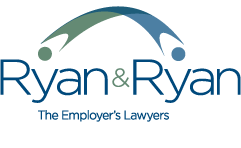The Connecticut Supreme Court, in Commission on Human Rights and Opportunities v. Echo Hose Ambulance et al., ruled that unpaid volunteers are not “employees” for the purposes of the Connecticut Fair Employment Practices Act, which contains Connecticut’s workplace anti-discrimination laws.
Specifically, the Connecticut Supreme Court decided that a volunteer must satisfy the ‘‘remuneration test’’ used to resolve similar federal causes of action, as opposed to Connecticut’s common-law ‘‘right to control’’ test. The remuneration test is comprised of a two-step inquiry. As a threshold matter, the volunteer first demonstrate remuneration. Remuneration may consist of either direct compensation, such as a salary or wages, or indirect benefits that are not merely incidental to the activity performed. The second step involves analyzing the putative employment relationship under the common-law agency test.
Upholding the Appellate Court’s ruling, the Connecticut Supreme Court held that the Plaintiff was not an “employee” under the Connecticut Fair Employment Practices Act, because she failed to meet the remuneration prong of the remuneration test.
